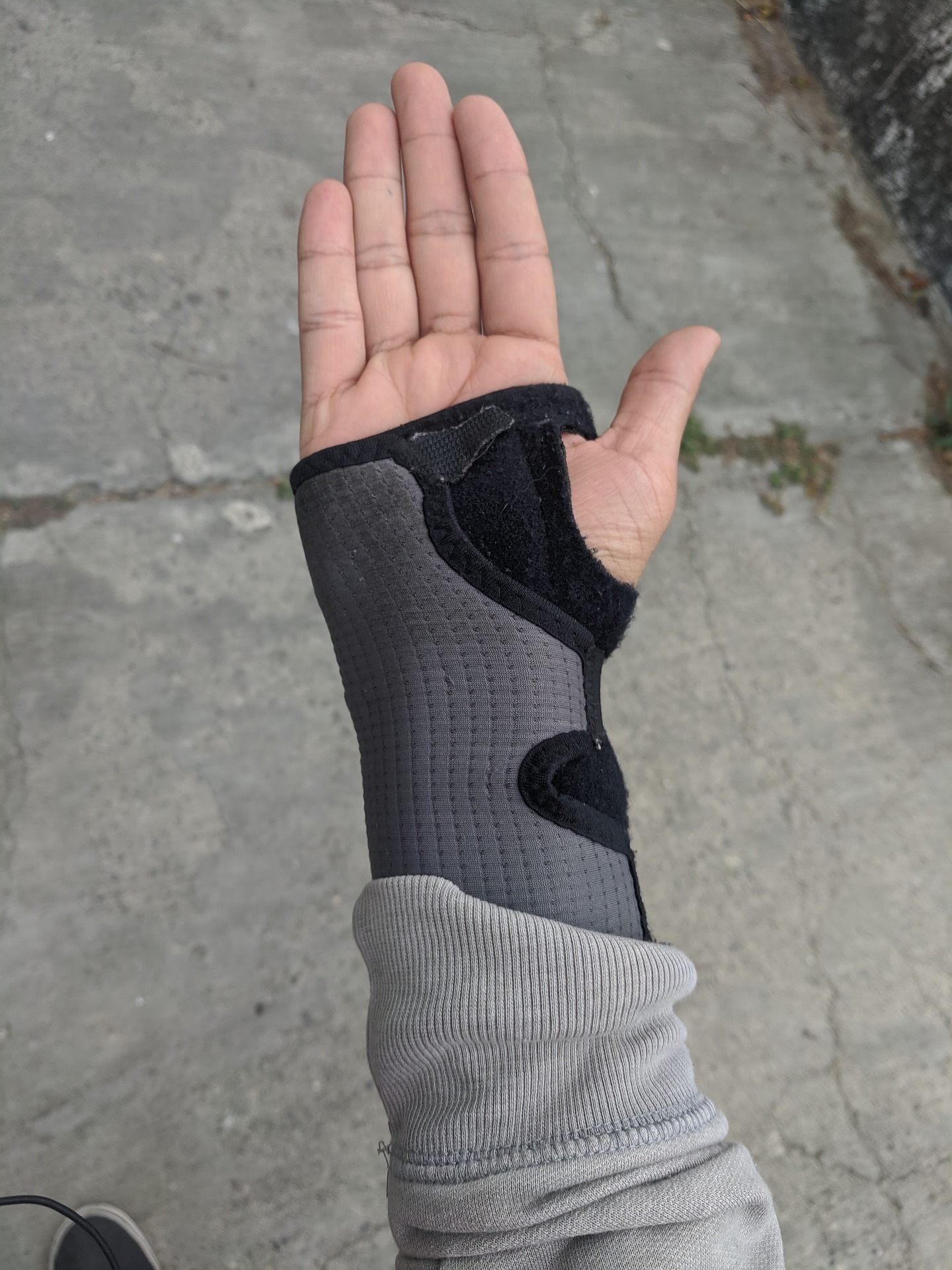Carpal tunnel syndrome can be defined as numbness often accompanied by a tingling sensation in the arm. It is mainly a result of a pinched nerve in the hand, more specifically, the wrist. This condition has also been known to cause some pain in the arm, worsening over time.

In layman’s language, this condition mainly occurs when one of the chief nerves in your hand, the median nerve, is compressed severely by excess pressure inside the carpal tunnel.
The condition worsens over time in many patients with the disease, but if it is diagnosed in its early stages, it is easily treatable. Further, in its onset, pains occasioned by this condition can be relieved by simply wearing a wrist splint or staying away from strenuous activities.
Causes
There are several reasons as to why anyone may suffer from carpal tunnel syndrome. It might be one factor or a combination of many factors. Further, in studies conducted, the results show that older people and women are the most likely to develop this condition compared to children and men.
Some causes/ risk factors include:
- Pregnancy- when a woman is pregnant, she undergoes significant hormonal changes. While this is normal, it may cause swelling of the joints and, subsequently, lead to carpal tunnel syndrome.
- Genetics- the size of the carpal tunnel varies between people. In others, the tunnel’s size might be smaller, while in some, relatively larger. All these are anatomic differences that often affect the size of the nerve under pressure, and this particular trait runs in families.
- Underlying health conditions- certain health conditions like arthritis and diabetes are factors that may cause this syndrome.
- Wrist positioning- if you perform activities that often demand extreme flexion and extension of the arm or wrist for an extended period, you might be at risk of acquiring the syndrome.
- Repetitive wrist motions- repeating similar wrist motions over an extended period will aggravate the tendons. If the tendons are aggravated, the wrist will swell, and pain will subsequently ensue.
Symptoms
The symptoms associated with carpal tunnel syndrome commence gradually and worsen over time. The patient may not suspect anything because they might think a wrist injury causes this condition. However, this is often not the case.
Further, many of the symptoms are experienced at night due to the sleeping posture many people assume. They sleep with the wrist bent, and the pain will often awake you from your slumber.
Some of the symptoms include:
- Frequent shock sensations that come from the index, thumb, and middle finger
- Burning and tingling sensation around the wrist
- Swelling
- Itching in your palm
- Numbness
- Weakness in your hand- you might even drop something held with this hand
In addition, as much as you may experience many of these symptoms at night, others may occur during the day. For instance, when holding something for an extended period and the wrist is bent backward or forward, one may experience the above symptoms.
Treatment
It is not entirely gloom and doom for patients suffering from carpal tunnel syndrome – treatment is available. Of course, the first step towards treatment is diagnosis. Therefore, head to a physician and be checked. If you indeed have the syndrome, then there are two main treatment options.
They include:
1. Non-surgical treatment
This involves treating the condition without any surgical intervention.
- One way is by bracing or splinting. Here, one wears a brace while sleeping to keep the wrist in a straight position.
- Another way is by steroid injection, which relieves symptoms
- Nerve gliding exercises-helps the median nerve move freely
- Changes in regular activities to prevent repetitive wrist motion
- Anti-inflammatory drugs- they help with the swelling
2. Surgical treatment
If none of the non-surgical interventions work, a surgical procedure called carpal tunnel release may have to be performed.
Wrapping up
Prevention is always better than cure. Therefore, to keep yourself from developing carpal tunnel syndrome, always ensure your hand is comfortable and avoid strenuous activities that go on for an extended period.